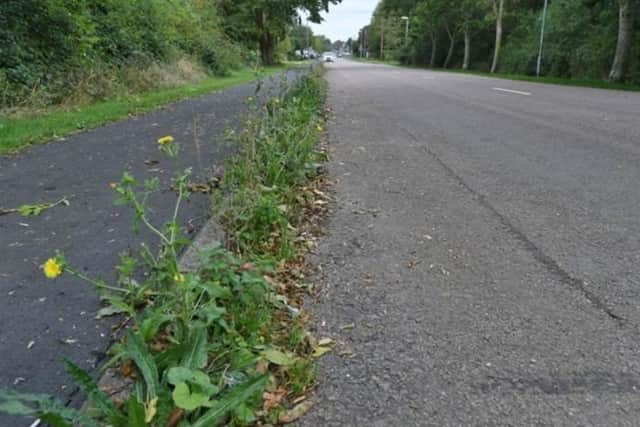Councillors call for an end to the use of a carcinogenic weed killer in public places
and live on Freeview channel 276
Glyphosate is classed as a “probable carcinogenic” by the World Health Organisation in 2015, meaning that it probably leads to cancer. The Council uses the chemical once a year in public spaces, such as footpaths.
Many countries around the world have banned the use of Glyphosate. It is banned from use in homes in France, Netherlands and Belgium and in Germany they have banned its use in public spaces. Bayer, the company that mass produces Glyphosate, has settled many lawsuits against itself.
Advertisement
Hide AdAdvertisement
Hide AdCouncillor Sean Macleod, Liberal Democrat for Newhaven North, said: “It is clear there is a desire in East Sussex to end the use of Glyphosate, it has links to cancer and residents are concerned about the health of their animals when it's been sprayed. There are decent alternatives out there, such as hot foam which is proven to be safe and also has a good effect on weeds.”


Councillor Lesley Boniface, Liberal Democrat for Seaford West and Trustee for Greenhavens Network, said: “Local residents and community groups are planning and planting for valuable nature corridors, I'm horrified at the recent announcement by ESCC to continue use of glyphosate."
An East Sussex County Council spokesperson said: “We currently carry out one weed spray a year on channels, kerbs and footpaths using Glyphosate, a Health & Safety Executive approved and registered product. The Glyphosate is heavily diluted and spraying is carefully controlled and limited in use to only where weeds are present. The County Council has a legal obligation to maintain public roads, which includes weed control.
“The use of Glyphosate was reviewed by the lead member for transport and environment in December last year, who confirmed its use until a suitable alternative becomes available. We note that a neighbouring council, which banned the use of Glyphosate in 2019, has decided to re-establish its use in a bid to prevent weeds from damaging road and pavement surfaces.
Advertisement
Hide AdAdvertisement
Hide Ad“We will continue our work with other authorities to find an alternative solution to controlling weeds, but these are currently limited and at this time do not provide us with options that are suitable for use on the county’s road and footpath network.”